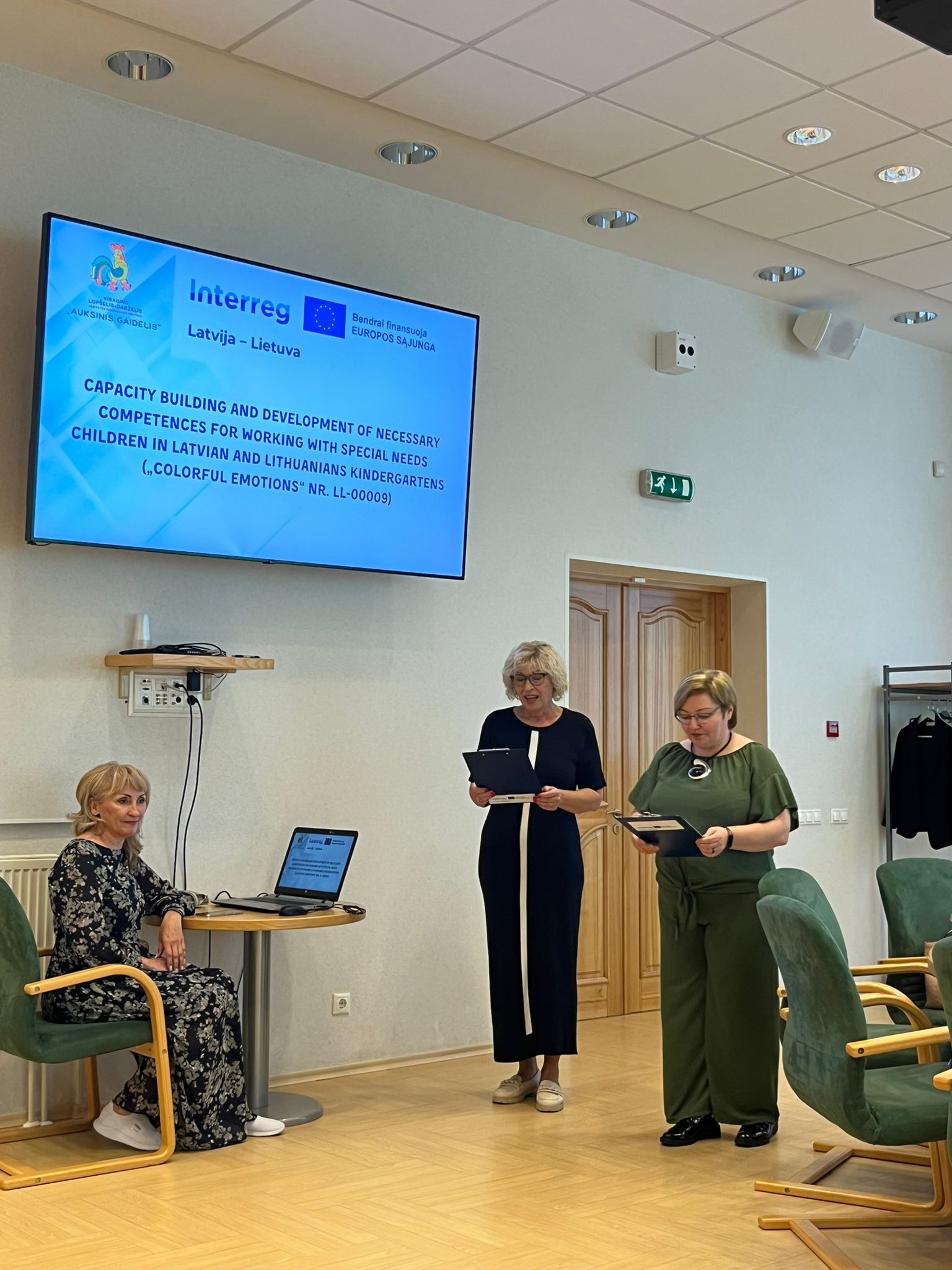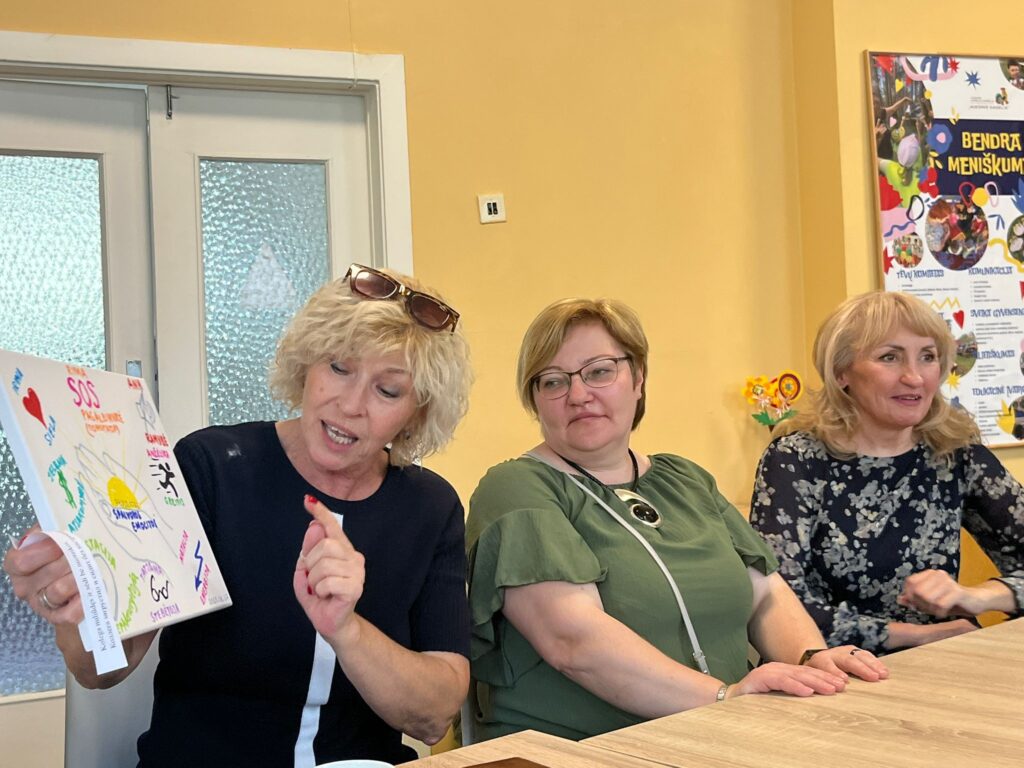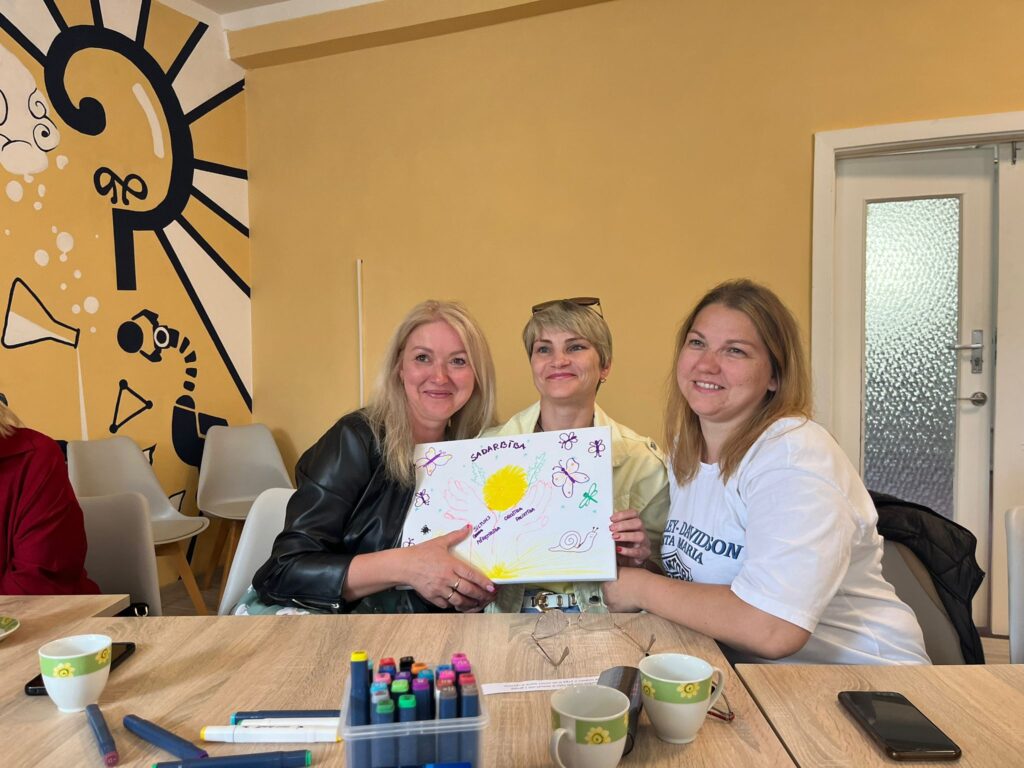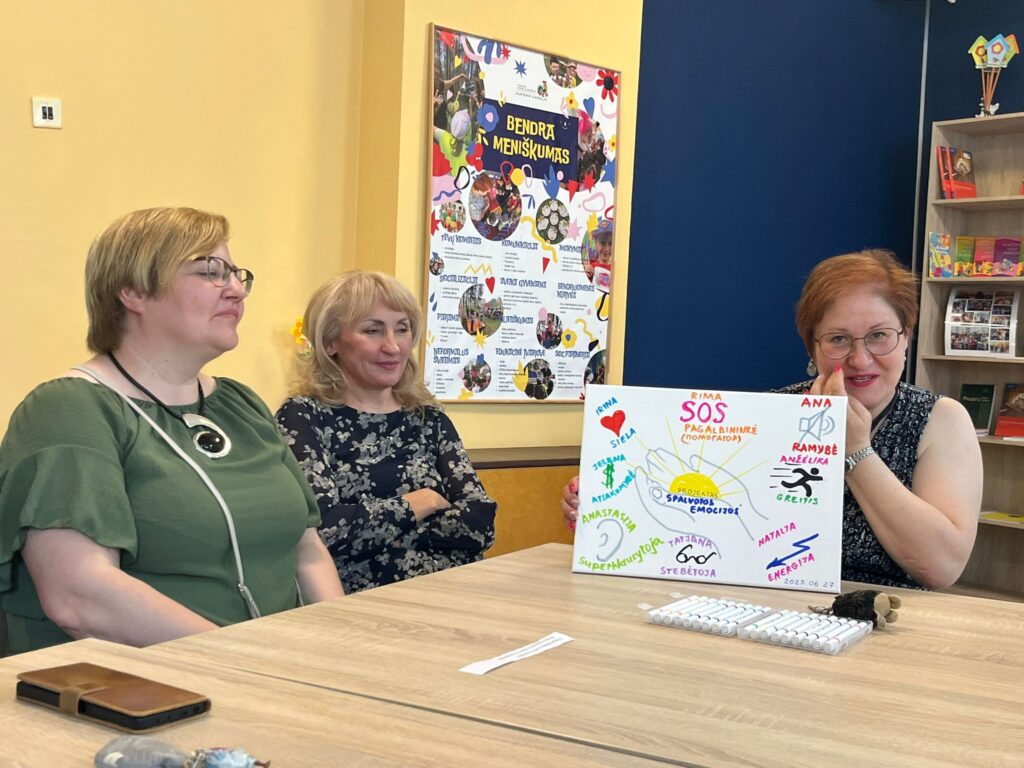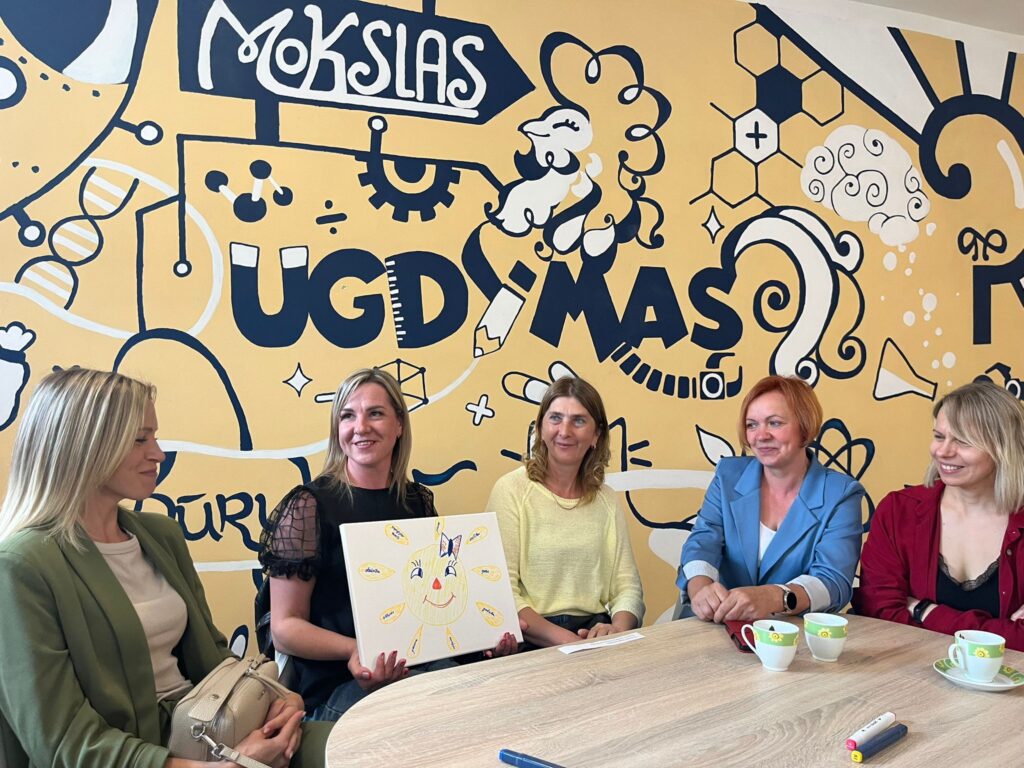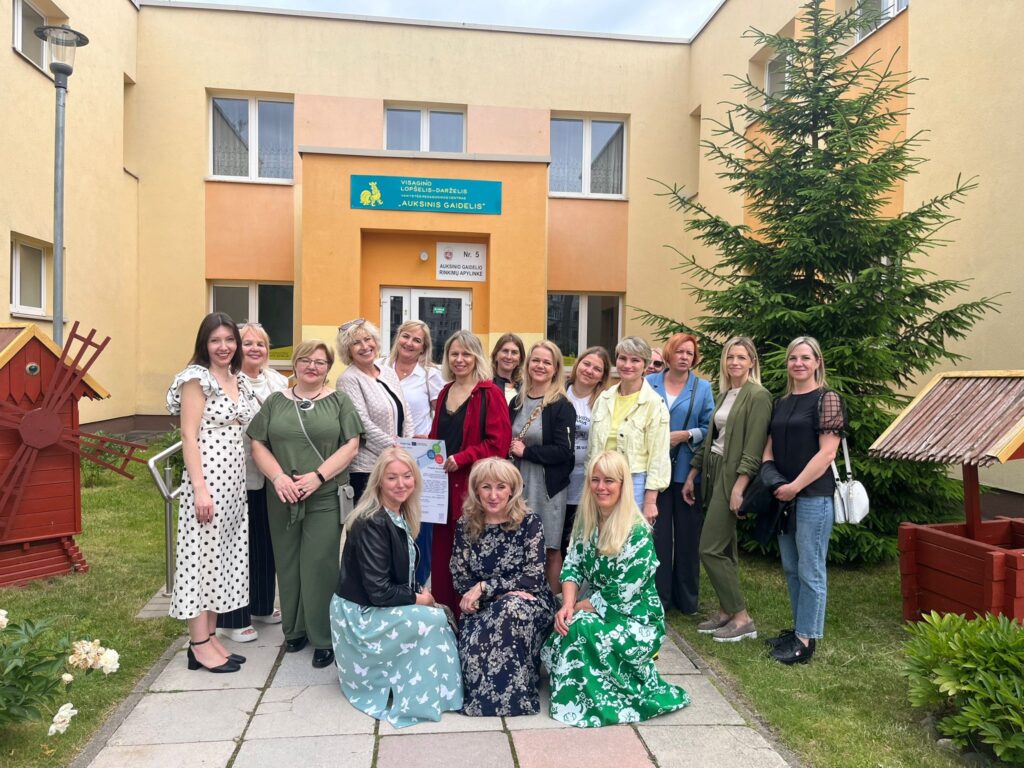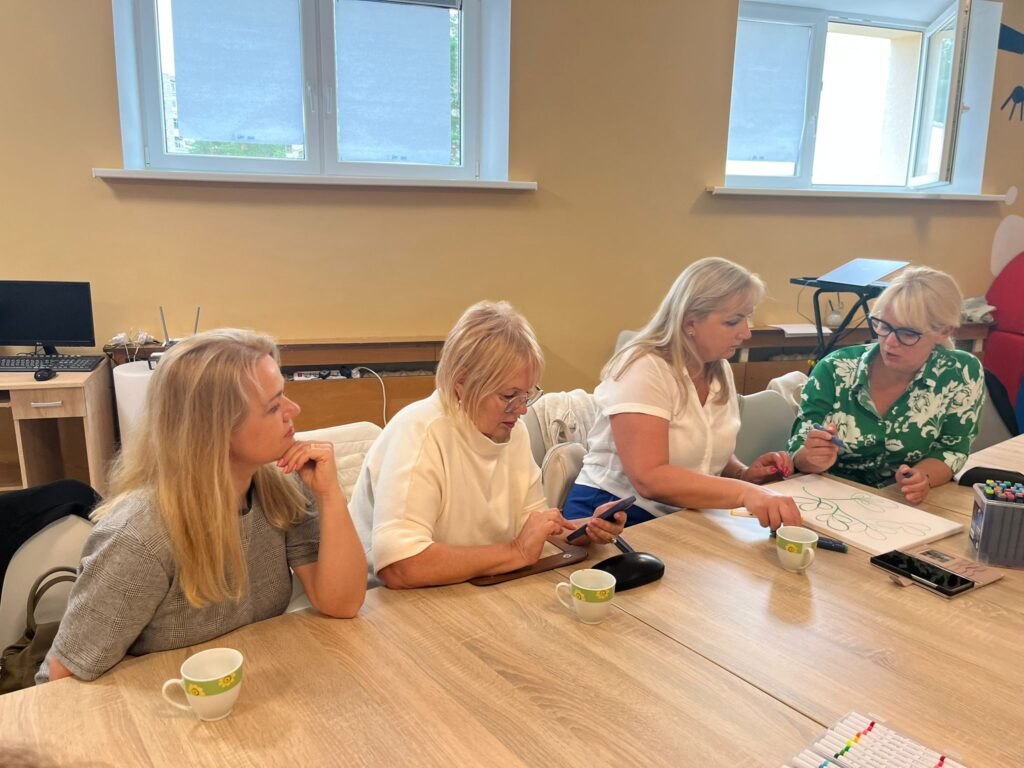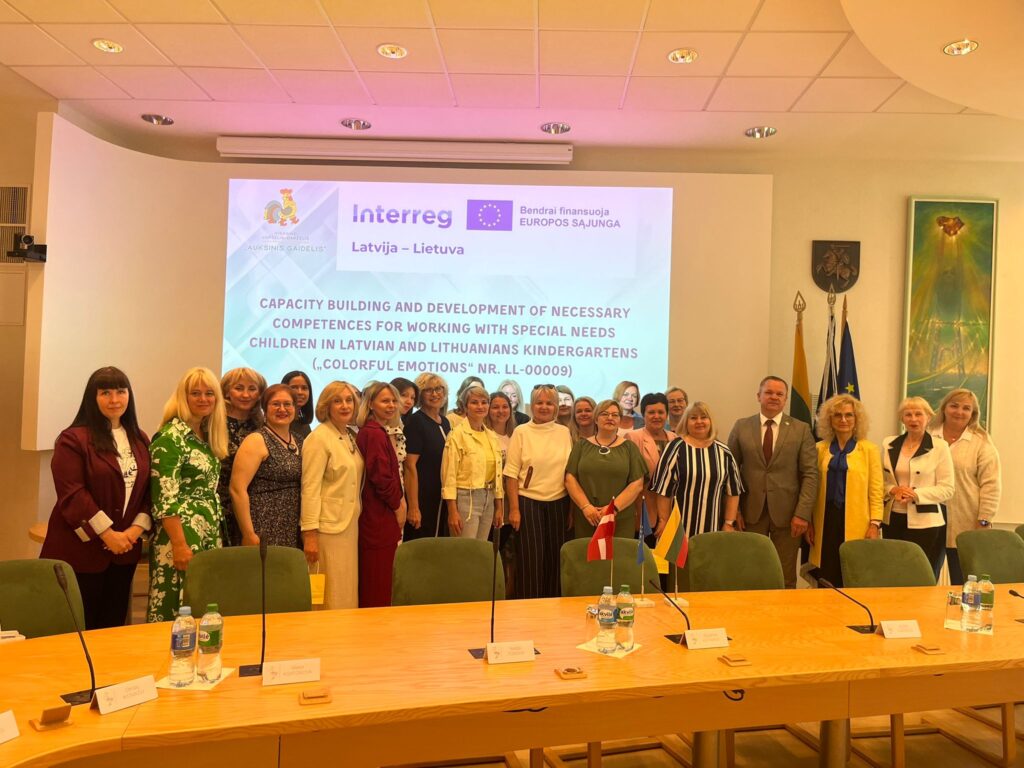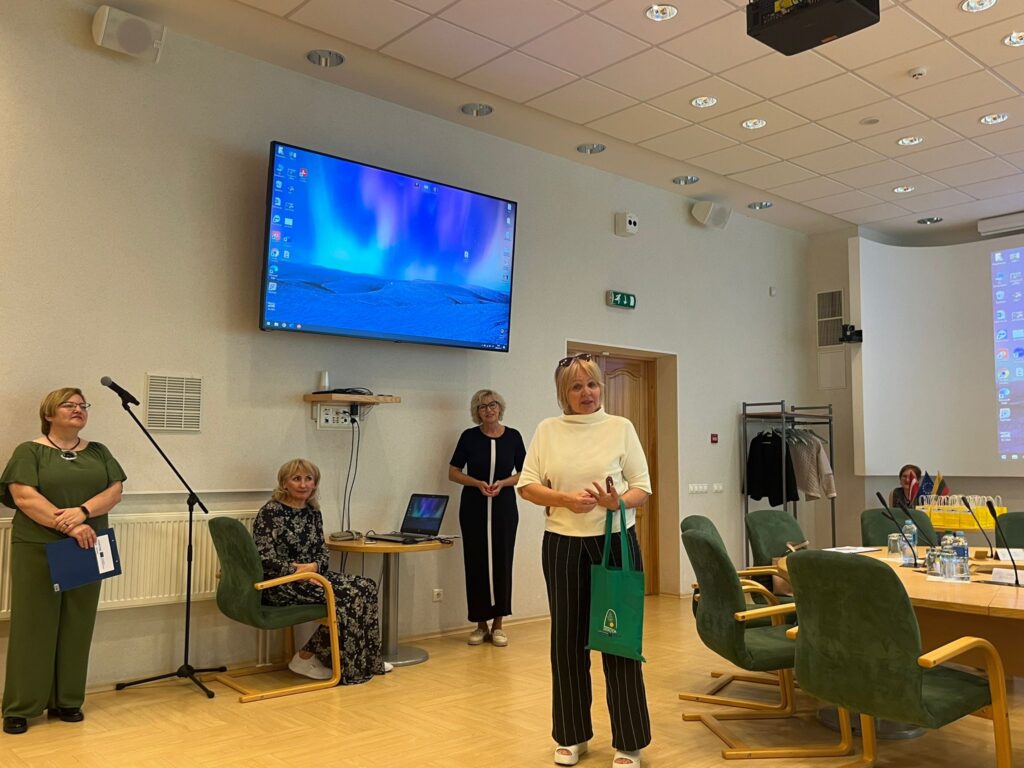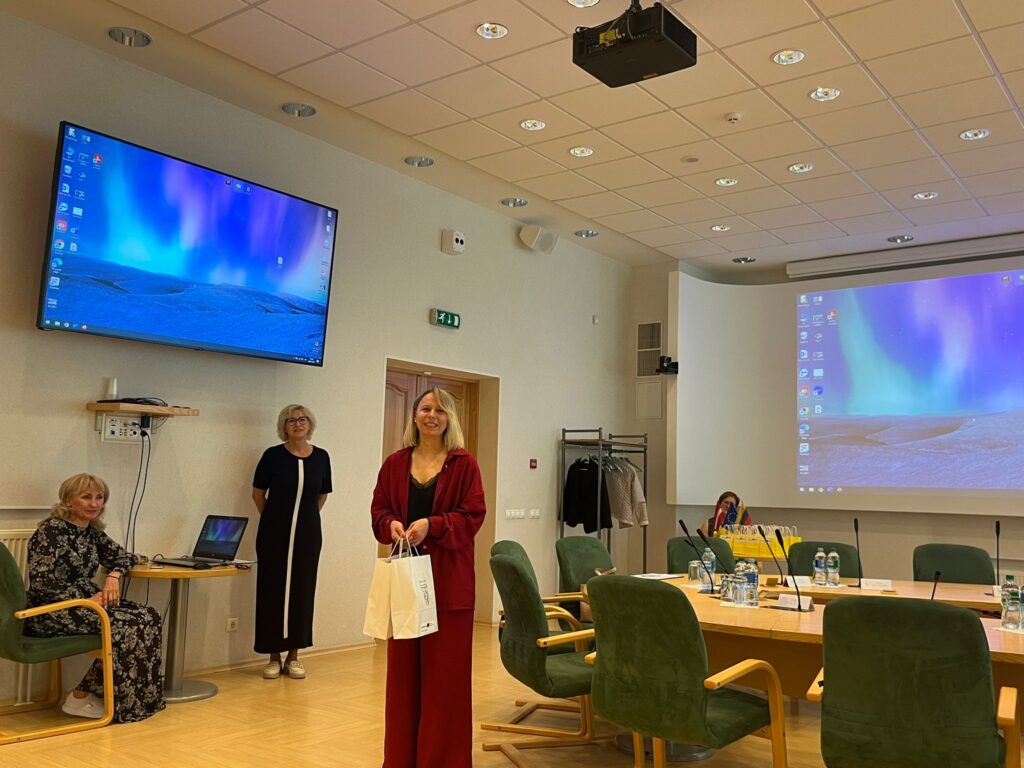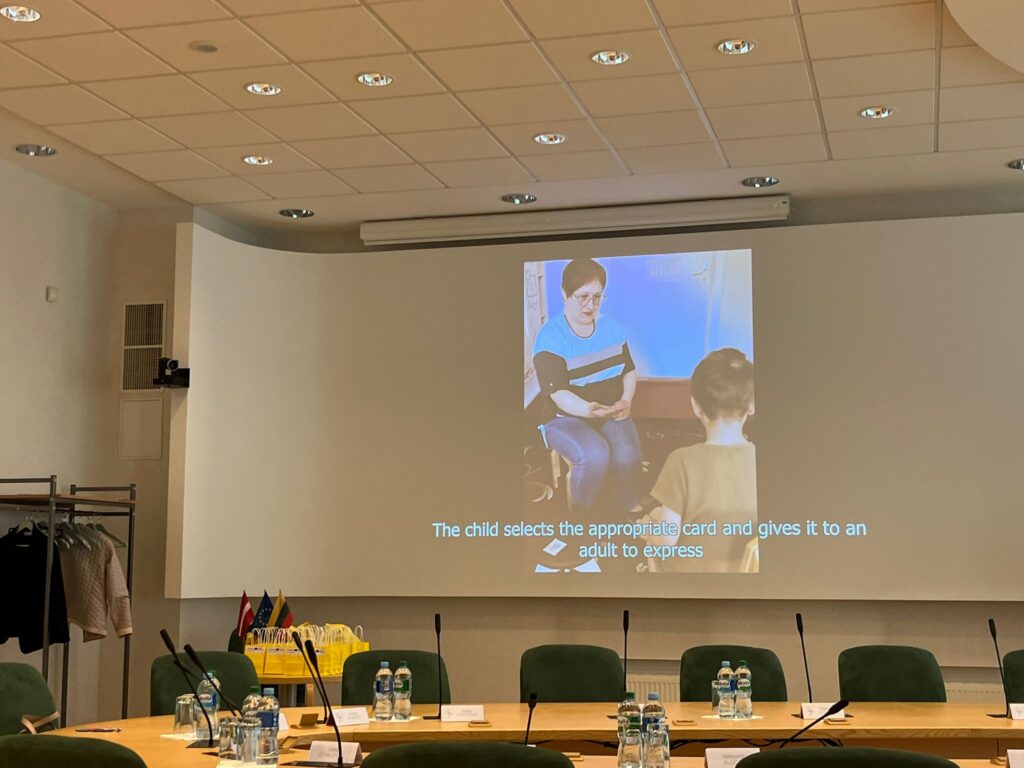On June 27, Visaginas Municipality hosted a significant event as part of the international project “Colorful Emotions” (Capacity building and development of necessary competences for working with special needs children in Latvian and Lithuanian kindergartens). The gathering brought together Visaginas’s mayor, Erlandas Galaguz; vice-mayor, Aleksandra Grigienė; the Head of Education, Culture, Sports, and State Language Control Department, Monika Gutė; directors of the Educational Support Services and local kindergartens; teachers, parents, and project partners from both Lithuania and Latvia.
Acting director Irina Petrova of the Visaginas lopšelis-darželis “Auksinis gaidelis” (Childhood Pedagogical Centre), together with project teachers, shared professional insights and showcased video demonstrations highlighting the practical application of PECS and Montessori methods to support children with special needs. The presentations underscored how these approaches enhance inclusivity, pedagogical competence, and a nurturing learning environment.
During the meeting, project stakeholders emphasized that the implementation of “Colorful Emotions” has significantly contributed to creating an inclusive and supportive environment in which all children—regardless of individual needs—can grow safely and happily. The collaboration between Lithuanian and Latvian educational institutions was also acknowledged as both valuable and necessary, enriching teaching practices and outcomes focused on each child’s abilities.
Following the formal proceedings at the municipality, participants continued at the Auksinis gaidelis kindergarten, where collaborative team activities invited participants to present their group’s strengths and “superpowers.” This reflective and creative exercise reinforced the spirit of unity, diversity, and collective achievement at the heart of the project.
This publication has been prepared with the financial support of the European Union. Its contents are the sole responsibility of Visaginas lopšelis-darželis “Auksinis gaidelis” and do not necessarily reflect the views of the European Union.


